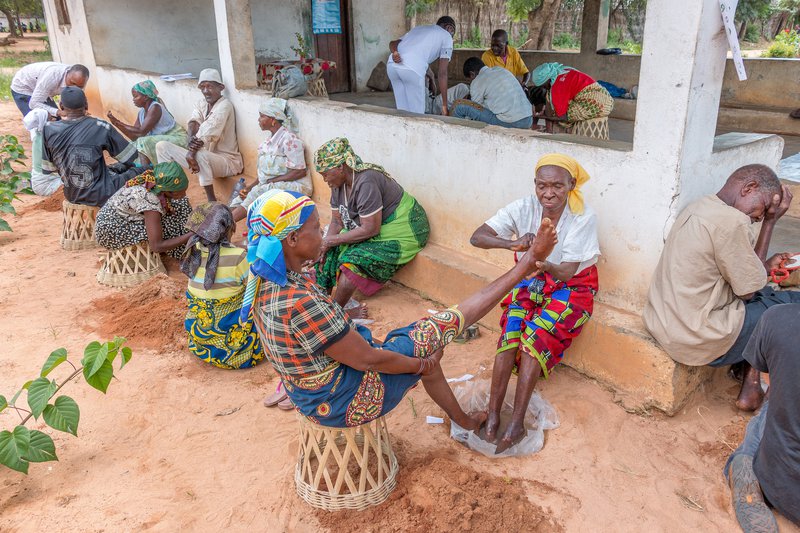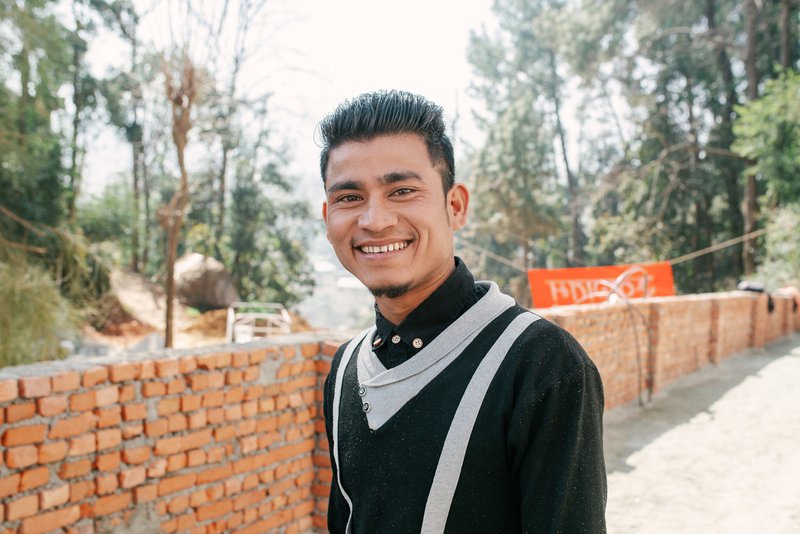Caring for disabled people
Towards our goal of zero leprosy disability, we work to reduce the likelihood of people with leprosy being disabled* after diagnosis.
Disability is not an inevitable consequence of leprosy. The earlier the condition is diagnosed, the less likely someone is to suffer permanent effects.
But, globally, millions of people are permanently disabled by leprosy. Many need long-term care or rehabilitation. They may have clawed hands, drop foot or affected eyes that can be corrected by surgery and physiotherapy, or ulcers that need hospital care before they will heal.
An increasingly important part of our work is improving the mental and spiritual wellbeing of people affected by leprosy. The stigma of the disease can lead to discrimination and rejection, meaning many people struggle with mental health issues like depression and anxiety. We provide counselling where appropriate and work with communities to fight prejudice.
At Anandaban Hospital in Nepal, counselling is an important part of caring for patients and their families, who often arrive for treatment bearing not only physical wounds but emotional ones too. Counselling has a positive effect on the wellbeing of patients, who tell us the hospital is a special place for them, where they feel loved and part of a family.
It is vital that people affected by leprosy understand the need to take care of their bodies after being cured. This prevents future disability. Permanently desensitised skin can stop someone feeling injuries and lead to infection and ulcers. It’s important to protect hands and feet when cooking over a fire or working in the fields. So our work frequently involves promoting knowledge of self-care, through individual and group training.

In Mozambique, we have supported people affected by leprosy to set up self-care groups, where they meet regularly to check their hands and feet for wounds and learn techniques to prevent disability.
At some of our hospitals and clinics, staff make prosthetics, protective footwear, mobility aids, and modified tools or protective gloves. These are crucial to prevent further disability and enable people to regain their independence and dignity.
This is the case at Chanchaga Orthopaedic Workshop in Nigeria. The workshop serves people affected by leprosy for free, and has become a sustainable social enterprise by offering its services to other disabled people. In 2019, the workshop helped 1,012 people affected by leprosy.
*Our work is informed by the social model of disability, which says people are ‘disabled’ by barriers in society, not their impairment or difference. But we recognise that across the world, including in many of the countries we work in, some prefer the term ‘people with disabilities’.
Ram's story

Ram, from Nepal, was diagnosed and treated for leprosy several years ago, but he had already developed clawed hands. This meant he could no longer earn his living as a stonemason. He was also worried about the stigma of being disabled by leprosy, fearful about how he would be treated by his community.
Ram is one of the many people who receive reconstructive surgery at Anandaban Hospital each year. The surgery restored the movement in his hands and has enabled him to work again. He has also received counselling to grow his self-esteem and give him confidence as he rebuilds his life.